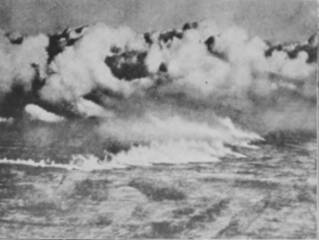The morning of April 22, 1915, French and Canadian soldiers were immovably entrenched to the north of Ypres, a Belgian city in the Flemish province of West Flanders. They saw a strange, green-yellow cloud form above the opposing German trenches. It then billowed across no man’s land into their ranks. As the cloud engulfed them, they experienced a burning sensation in their throats and intolerable choking. Within seconds, men were writhing in their death agonies, vomiting blood and mucus; a few ran away from this foe, one they could not comprehend.
It was the first, large scale use of chlorine gas in battle, and it marked the beginning of modern warfare, which fails to separate soldier from civilian. In her new A Higher Form of Killing: Six Weeks in World War One That Forever Changed the Nature of Warfare (2015) Diane Preston retrieves the flawed moral reasoning, eventually used on both sides, to justify tactics such as the air bombing of cities, the use of poisonous gasses, and the sinking of civilian ships: yes, it was cruel, but cruelty shortens war.
Our tradition speaks of evil as the absence of good, reasoning that, if evil existed in its own right, it would need to possess something of the good since all being comes from God, who is goodness itself. Hence evil can only be the absence of good, as cold is the loss of heat, or darkness the absence of light.
Philosophically good enough, though it leaves unexplained the human choice of evil. Why is it, how is it, that we can, and that we do, choose something less than the good? It’s sin that is utterly senseless. It defies comprehension. Sin tears and twists the good, until the senseless seems sensible and evil appears to exist in itself.
Preston retrieves the century-old scene through the memoire of Captain Jean Mordacq, a French brigade commander, who
Will evil always exist? No. Theologically, history can be defined as Christ’s long quieting of evil. Humanity’s story begins with a choice for something less than the goodness of God. It will end when God’s goodness overwhelms its own absence. “He is expiation for our sins, and not for our sins only but for those of the whole world” (1 Jn 2:2).
Acts 3: 13-15, 17-19 1 John 2: 1-5a Luke 24: 35-48








